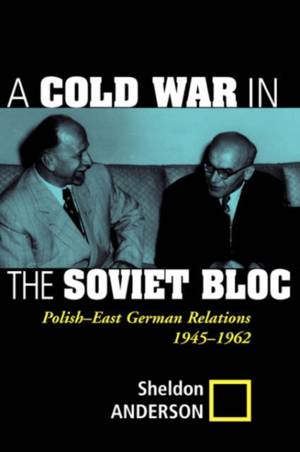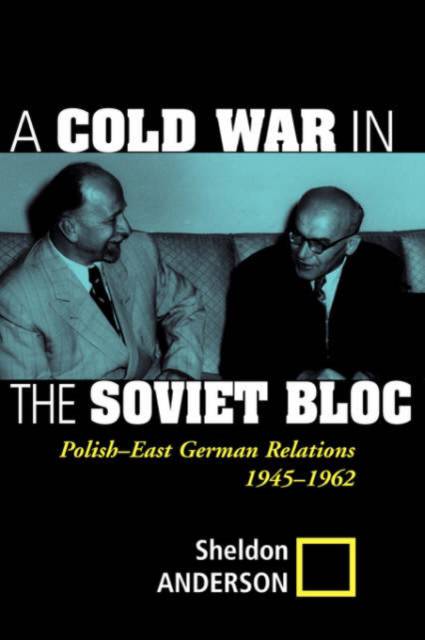
Door een staking bij bpost kan je online bestelling op dit moment iets langer onderweg zijn dan voorzien. Dringend iets nodig? Onze winkels ontvangen jou met open armen!
- Afhalen na 1 uur in een winkel met voorraad
- Gratis thuislevering in België vanaf € 30
- Ruim aanbod met 7 miljoen producten
Door een staking bij bpost kan je online bestelling op dit moment iets langer onderweg zijn dan voorzien. Dringend iets nodig? Onze winkels ontvangen jou met open armen!
- Afhalen na 1 uur in een winkel met voorraad
- Gratis thuislevering in België vanaf € 30
- Ruim aanbod met 7 miljoen producten
Zoeken
A Cold War in the Soviet Bloc
Polish-East German Relations, 1945-1962
Sheldon Anderson
Paperback | Engels
€ 102,45
+ 204 punten
Uitvoering
Omschrijving
In A Cold War in the Soviet Bloc, Sheldon Anderson uses recently declassified documents from Polish and East German communist party and foreign ministry archives to examine the interplay of national interests with the exigencies of communist party relations within the Soviet bloc during the Cold War. Anderson explores how Polish-East German relations were strained over the permanence of the Oder-Neisse border, the correct road to socialism, German repatriation from Poland, and trade policy; he provides an inside account of the heated debates that seriously divided the Polish and East German communists.Anderson delves into how and why the rift culminated in the return of the anti-Stalinist Wladyslaw Gomulka in October 1956, and he delineates how the Polish-East German conflict undermined the unity of the Soviet bloc on its most strategic flank. In doing so, he reveals the persistence of nationalism and ethnic prejudice in the former communist countries. In this timely text, Anderson pinpoints how nationalism has reemerged as a powerful political force following the end of the Cold War. With A Cold War in the Soviet Bloc, Anderson markedly fills the gap in the existing scholarship on postwar relations between the countries of East Europe.
Specificaties
Betrokkenen
- Auteur(s):
- Uitgeverij:
Inhoud
- Aantal bladzijden:
- 336
- Taal:
- Engels
Eigenschappen
- Productcode (EAN):
- 9780813337838
- Verschijningsdatum:
- 1/12/2000
- Uitvoering:
- Paperback
- Formaat:
- Trade paperback (VS)
- Afmetingen:
- 156 mm x 234 mm
- Gewicht:
- 471 g

Alleen bij Standaard Boekhandel
+ 204 punten op je klantenkaart van Standaard Boekhandel
Beoordelingen
We publiceren alleen reviews die voldoen aan de voorwaarden voor reviews. Bekijk onze voorwaarden voor reviews.











